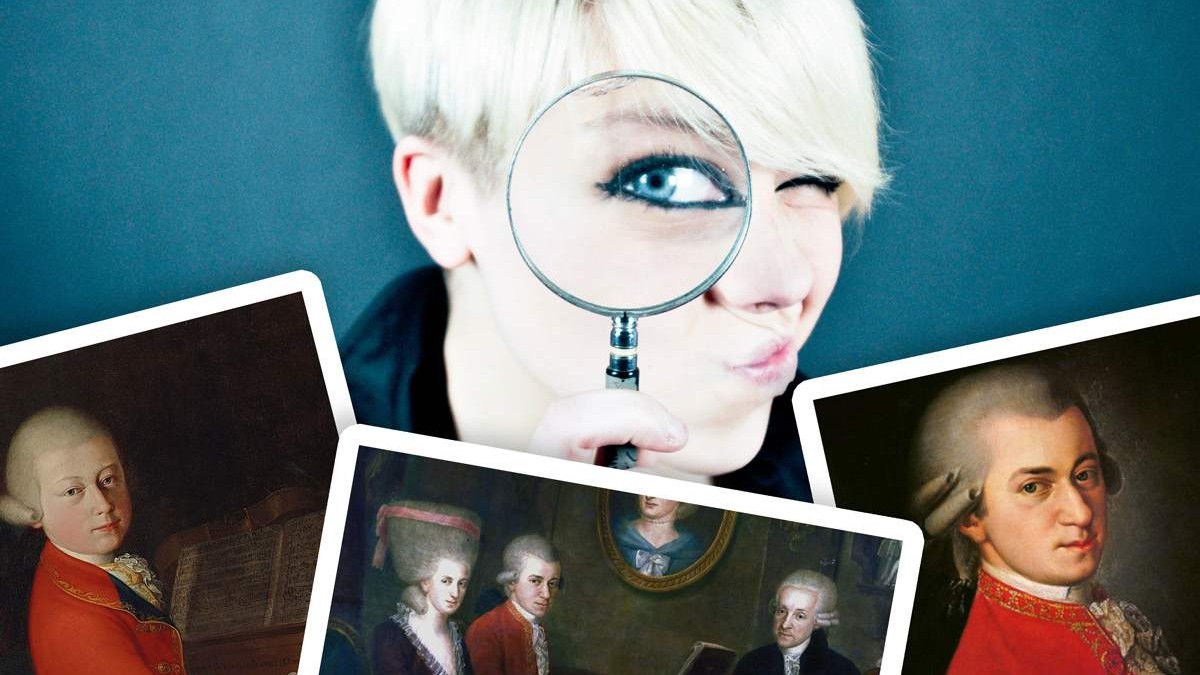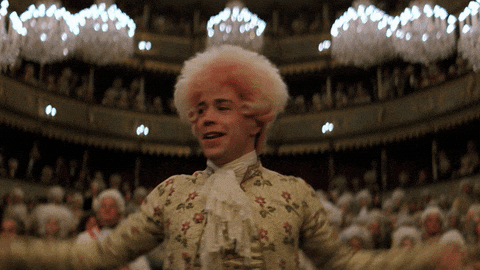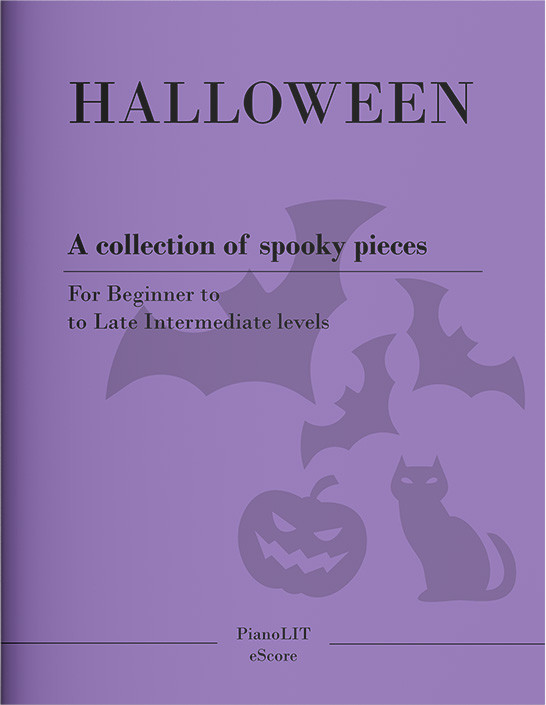FACT-CHECK: Truths and myths about Mozart
With so many stories surrounding Mozart and his family, it is difficult to know exactly what is true and what has been "embellished" overtime... Here is a list of some of the most famous stories about Mozart and our verdict on each one!
Jan 13, 2020 • 20 min read
36676

Want a heads up when a new story comes out?
Mozart is one of those historical figures with many fun facts and anecdotes surrounding them. From his years as a child prodigy to his sudden death at just 35 years old, stories such as his love for fart jokes, his marriage proposal to the (then) future Queen of France Marie Antoinette, or his elaborate funeral to his pet bird seem quite incredible. But are these stories real?
We looked for sources that would corroborate some of these claims! Below is a list of the most famous stories surrounding Mozart and what we found out about them.
•••
CLAIM#1
He loved fart jokes
The story
It is said that Mozart loved what is called "scatological humor". The term related to jokes about farts, arses and such. Not only the story is that he enjoyed to talk and write about these subjects, but he also composed a piece about it!
What we know
The letters in which he details such jokes do exist1. In a letter from 1777 to his cousin, Mozart writes:
Well, I wish you good night
But first shit in your bed and make it burst.
Sleep soundly, my love
Into your mouth your arse you'll shove.
And at the end of the same letter...
Well, I thought "Let's see", put my finger to my arse and then to my nose and-Ecce, provatum est. Mamma was right after all. Well, farewell. I kiss you 1000 times and remain, as always, your little old piggy wiggy.
What is most interesting in all this, is how light, casual and humorous it was! And, in case you were wondering about that piece we mentioned... yep, that is also real. It is a Canon for 6 voices KV 231 entitled: Leck mich im Arsch - which translates to "Lick Me in the Ass".
Our verdict: TRUE
•••
CLAIM#2
Mozart had a deadly rival called Salieri
The story
Back in 1984 a movie called Amadeus got a lot of attention for its supposedly biographical depiction of Mozart. Among many interesting stories, the movie portrayed the jealousy that Antonio Salieri, an old and famous composer, felt towards the talented and young Mozart.
In the movie, Salieri resented the young Mozart for his lack of respect, decency and, above all, his unmatchable musical genius. This hatred reached its climax at the end of the movie when Salieri plotted to poison him.
What we know
This story has absolutely nothing to do with reality2. There is no evidence showing that Salieri had such resentment towards the young composer, let alone the idea that he had anything to do with Mozart's death. Antonio Salieri was a respected musician in the time and a teacher to many prominent musicians such as L.V. Beethoven, F. Schubert, and F. Liszt.
He was also a teacher of Mozart's own son Franz Xaver Wolfgang Mozart!
To be fair, this story was not invented by the movie's writer. According to this article on BBC, the Russian poet Alexander Pushkin was the first to come up with this idea. In 1830 he published a short play called "Mozart and Salieri", which explores the same falsehood about their relationship.
Why did he do that?
He probably thought this idea was amusing and would captivate his audience. It turns out he was right! Years later Nikolai Rimsky-Korsakov set the play into opera and, just under a century later, the movie came out still enchanted by the same fictional nonsense.
Our verdict: FALSE
•••
CLAIM#3
Mozart proposed to Marie Antoinette
The story
This is a crazy one. Do you know Marie Antoinette, the last Queen of France before the French Revolution? So the story goes that Mozart met her in 1762 and proposed to her then. Of course, there was nothing serious about that since both were just kids. But still!
The meeting is said to have happened in the Mirrors Room at Schönbrunn Palace, a Habsburg summer residence to the west of central Vienna. This was the year before Mozart's father begun traveling with his son, introducing the 6-year-old prodigy to noble families and wealthy patrons across Europe. On that day, so the story goes, Mozart met Marie Antoinette (who was just 3 months older than him).
After playing for the Holy Roman Emperor Franz Stefan and Empress Maria Theresia, Mozart accidentally slipped on the floor and was helped by Marie Antoinette. The boy then said: "You are good! I will marry you!".3
What we know
Mozart's visit in October 1762 to the Schönbrunn Palace4 indeed happened (the palace still brags about it), and he most likely did meet with Roman Empress Maria Theresia's children (among them Marie Antoinette). After performing for them, Mozart was gifted with a gala dress that he proudly wore in this famous portrait.
The problem with this story is that we have no mention of this from Mozart's father Leopold. He was always keen to spread fantastic stories about his son and would certainly have seized on this one.
The fact that he never mentioned it makes the proposal incident story impossible to confirm, even though the event and meeting did occur.
Our verdict: MAYBE
•••
CLAIM#4
Listening to Mozart makes people smarter
The story
You probably have seen articles online claiming that listening to Mozart stimulates intelligence in children (or any of us for that matter). The origin of this story5 seems to come from a paper published in 1993, where the author claimed that "after listening to Mozart's sonata for two pianos (K448) for 10 minutes, normal subjects showed significantly better spatial reasoning skills than after periods of listening to relaxation instructions designed to lower blood pressure or silence".
A number of online articles spread this exciting idea, but is this theory real?
What we know
The answer is no, it is not. While Mozart's music can certainly have multiple positive effects on any individual, there is no scientific consensus backing the notion that his music specifically helps intelligence in any way. The famous "Mozart Effect"6 is another one of those studies that seem to produce exactly the type of result we want it to have.
Does classical music have a positive effect on us? Absolutely! It certainly stimulates creativity, focus, relational and logical thinking, coordination, fine motor skills, spatial-temporal reasoning, and much more.
Does classical music (or specifically Mozart's music) directly influence our brain activity making us smarter? Until enough scientific evidence is discovered confirming this idea, the answer is no7.
Our verdict: FALSE
•••
CLAIM#5
He held an elaborate funeral ceremony to his pet bird
The story
On May 27th, 1784, Mozart purchased a starling bird. He had an affection for birds in general, but this seemed to have been a special one. As the story goes, when the bird died just 3 years later (on June 4th, 1787) Mozart held an elaborate funeral ceremony that included a poem he wrote for the occasion. He invited anyone who could sing, and guests were heavily veiled in a sort of requiem for the bird.
What we know
Accounts for this story are not found in his letters, but in his expenses book and among contemporary biographers who were present at the ceremony.
As one of the guests who were present at the funeral said9
When a bird died, he arranged a funeral procession, in which everyone who could sing had to join in, heavily veiled - made a sort of requiem, epitaph in verse.
And here is the poem9 Mozart wrote for the occasion
This story is indeed well documented, with enough sources to back the details. Mozart even wrote down a melody he sang8 to the bird and the bird was able to sing back to him. The little tune is the theme of his Piano Concerto in G KV 453, which he had written just a few weeks earlier.
Our verdict: TRUE
•••
CLAIM#6
Mozart did not want his children to be breastfed
The story
During the 17th and early 18th centuries, it was rather common for the European upper classes to feed children water, instead of the mother's milk.
This practice started in the 1700s, when breastfeeding was considered unfashionable. People believed that it would prevent women from wearing socially accepted clothing, among other issues10.
Mozart and his sister (according to Mozart at least) were themselves not breastfed and he insisted this was the best for his own children.
What we know
The story is indeed true, as we find mention of this in his own letter to his father, from June 18th, 1783:
For I was quite determined that whether she should be able to do so or not, my wife was never to feed her child. Yet I was equally determined that my child was never to take the milk of a stranger! I wanted the child to be brought up on water, like my sister and myself.
This practice fell out of fashion during the mid-1800s.
Our verdict: TRUE
•••
CLAIM#7
He met with Beethoven and hailed the young composer's talent
The story
Ludwig Van Beethoven left his birth city of Bonn, Germany, in 1787 with a mission: head to the Austrian Imperial Capital Vienna to launch his musical career and, among other ambitious plans, meet with the great composer Wolfgang Amadeus Mozart.
Accounts regarding what happened then are fuzzy and don't always agree. Some say Beethoven played for Mozart, while others claim that Beethoven actually took a few lessons from him11.
What we know
The confusion comes from two very different (and unsubstantiated) accounts:
- Otto Jahn12, a biographer who wrote about Mozart's life in 1882
- Maynard Solomon13, a biographer who wrote about both Mozart and Beethoven in 1995 and 2001 respectively
Jahn is the author responsible for the famous story that after hearing Beethoven play, Mozart said to bystanders "Mark that young man; he will make himself a name in the world!". While intriguing and exciting to imagine that such an event had happened, the author never disclosed where he got this story from nor was this confirmed by any other source.
Solomon, on the other hand, claimed that Mozart gave Beethoven an audition but rejected him over other affairs going on in his life at the time. This too has never been corroborated by any other source.
The consensus among scholars11, however, is that the meeting could very well have taken place. Beethoven did go to Vienna with plans to meet with Mozart and such a meeting between a great musician and a young talent is surely not unheard of.
Beethoven's famous student Carl Czerny told Otto Jahn (that same biographer mentioned before) that Beethoven had told him that Mozart "had a fine but choppy way of playing, no legato"14.
The veracity of this meeting seems impossible to confirm now, but it is very likely (based on Czerny's account) that Beethoven at least heard Mozart playing at some point while he was in Vienna in 1787.
Our verdict: MAYBE
•••
CLAIM#8
Mozart died before finishing his Requiem
The story
This is another famous story made popular by the movie Amadeus: Mozart is commissioned to write a Requiem Mass by an anonymous individual who then plots to poison the composer before he could finish the piece.
The movie claims that the anonymous person was Antonio Salieri, but that story has already been debunked in this post. Let's now look at the second part of the story, whether or not Mozart finished this famous work.
What we know
The anonymous person who commissioned the Requiem did exist: it was a count called Franz von Walsegg. He was a rich amateur musician who used to commission works by famous composers and passed them off as his own. In this case, Walsegg wanted to publish a Requiem Mass as if it was his own, and dedicate it to the passing of his wife15.
The count commissioned the Requiem and Mozart started working on it in late 1791. He died on December 5th of that year, leaving the work unfinished as his wife Constanze wrote in a letter to a music publisher16:
And I cannot reconcile myself to the thought that you might easily forget to mention one of Mozart's masterpieces, I mean the great "Requiem", just because it is not to be found in his thematic catalog. Whereas, if you include it, you need only add a note to the effect that as it was Mozart's last work and was not quite finished, it was not and could not be entered in his catalog.
Constanze is in fact credited with many misconceptions surrounding the Requiem and its composition17. After Mozart's death, the Requiem was finished by a friend (a composer, student of Salieri) called Franz Xaver Süssmayr. The finished copy was then delivered to Walsegg, who was expected to complete the payment soon after. Constanze needed the money, so she carefully kept the "unfinished" part of the story a secret so that the commissioner would not lose interest in the work.
After the payment was completed, Constanze gave a number of interviews to biographers17 where she exposed the work as being by Mozart but also added other details, probably meant to generate excitement around the piece, which would mean more concerts and revenue for the family.
Such stories included the idea that Mozart thought he was writing a Requiem Mass for himself, that she never learned the commissioner's identity and that Mozart continued to write the piece until the last day when he was dictating the final notes to his assistant. Very dramatic for sure, but none of that is true. You can find the complete list here.
What is true is that Mozart indeed died (the cause has never been confirmed) before completing the Requiem.
Our verdict: TRUE
•••
So there it is!
If you know of any other interesting story not mentioned here, let us know and we'll be sure to add them to this list.

- [1] https://archive.org/details/in.ernet.dli.2015.179825/page/n89
- [2] http://www.bbc.com/culture/story/20150224-what-amadeus-gets-wrong
- [3] https://royalcentral.co.uk/features/when-mozart-met-marie-antoinette-133508/
- [4] https://www.schoenbrunn.at/en/about-schoenbrunn/the-palace/tour-of-the-palace/mirrors-room/
- [5] https://www.wqxr.org/story/top-five-myths-about-mozart/
- [6] https://www.npr.org/templates/story/story.php?storyId=128104580?storyId=128104580
- [7] https://www.ncbi.nlm.nih.gov/pmc/articles/PMC1281386/
- [8] https://books.google.com/books?id=e8AtwaddUW4C&ppis=_c&lpg=PA225&ots=V_zXNUsgZu&dq=mozart%20expense%20book&pg=PA225#v=onepage&q=mozart%20expense%20book&f=false
- [9] https://en.wikipedia.org/wiki/Mozart%27s_starling
- [10] https://www.ncbi.nlm.nih.gov/pmc/articles/PMC2684040/
- [11] https://en.wikipedia.org/wiki/Beethoven_and_Mozart
- [12] https://books.google.com/books?id=NbMHAQAAMAAJ&q=bystanders#v=snippet&q=bystanders&f=false
- [13] https://archive.org/details/mozartlife00solo
- [14] https://books.google.com/books?id=j8RIq67v51cC&pg=PA88&dq=beethoven+mozart+choppy+Thayer&hl=en&sa=X&ved=0ahUKEwjw1qLasKvMAhUG2WMKHbXKCjoQ6AEIHTAA#v=onepage&q=beethoven%20mozart%20choppy%20Thayer&f=false
- [15] https://books.google.com/books?id=KJtQptBcZloC&dq=Franz+von+Walsegg&q=walsegg#v=snippet&q=walsegg&f=false
- [16] https://archive.org/details/lettersofmozarth000640mbp/page/n501
- [17] https://en.wikipedia.org/wiki/Requiem_(Mozart)#Conflicting_accounts


